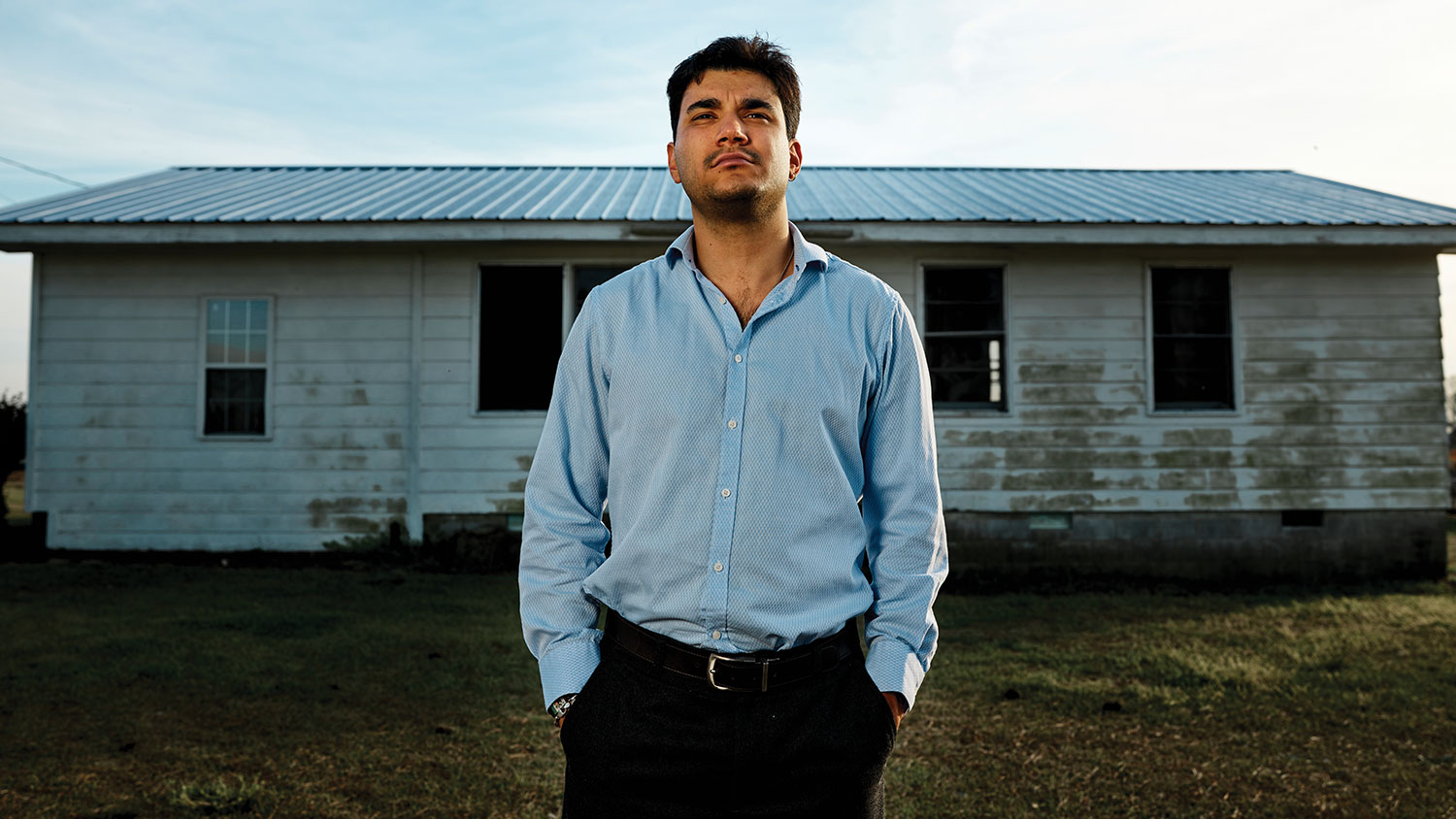Field Work
Aaron Sánchez-Guerra ’18 highlights the dangers North Carolina’s extreme heat poses for outdoor laborers.

WUNC reporter Aaron Sánchez-Guerra ’18 was hired at North Carolina Public Radio in April 2024 to cover topics of race, class and communities. But he admits, “that’s a very vague and broad beat.” More specifically, he loves to talk to people and cover issues that he relates to. He is a native of the Rio Grande Valley, and he sees journalism as “a way to highlight issues that [are] underreported, that [are] marginalized, that are overlooked.”
As a student journalist Sánchez-Guerra interned with Student Action with Farmworkers, a nonprofit aimed at improving conditions for farmworkers. While there, he connected with migrant and undocumented immigrant workers, and because he’s bilingual, he was able to learn about the pressures and difficulties they face. Last year he teamed up with Celeste Gracia, an environmental reporter, to take a closer look at the conditions outdoor workers face in a warming climate.
The result is Scorched Workers, a multimedia project that examines the impact of rising heat on outdoor workers and explores the connection between worker protections and politics. The ongoing project currently consists of two audio reports in English and a magazine-like publication available in English and Spanish. Sánchez-Guerra hopes Scorched Workers will bring attention to the oppressive working conditions of many farmworkers who often toil through extreme heat and humidity with few breaks, to provide for their families. They have “very little freedom in their jobs and work and live under a constant fear of retaliation if they should report an issue,” he says.
Sánchez-Guerra points out that it’s not just farmworkers who are at risk, but also airport, construction, postal and municipal workers. “Rising heat is something that everybody in the country should be concerned about,” he says, and he hopes to raise awareness through his reporting that this climate issue is also an issue of environmental injustice. “There are deaths that have happened … related to the climate, related to the heat, and that we can prevent.
“And I think information is the first step.”
Tell Us What You Think
Do you have a personal connection to this story? Did it spark a memory? Want to share your thoughts? Send us a letter, and we may include it in an upcoming issue of NC State magazine.


